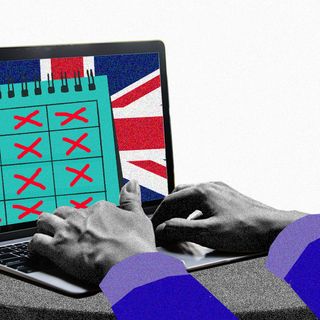
Why Influencers Promoting ‘Hustle Culture’ to Young Followers Is a Dangerous Trend
What is peddled as practical advice is anything but — especially given how unsustainable hustle culture is.

Earlier this week, Raj Shamani, a man who describes himself as an entrepreneur, was heavily trolled by the netizens for endorsing “hustle culture” — one that determines individuals’ worth on the basis of the number of hours they devote to their careers, despite studies linking long working hours to depression and anxiety. His tweet said, “If there were 25 hours a day, I’d still want to work 26 hours. It’s not that I am a workaholic, I just f**king love the grind.”
Shamani’s celebration of the hustle is not isolated. Influencers like Ranveer Allahbadia and Malvika Sitlani regularly encourage their viewers to “put in the hours” — often suggesting it is all one needs to succeed in the world. Each of them, with a following of tens of thousands of people, thus illustrates a myth of merit, talent, and opportunity that is anchored solely to the individual, and not the system — creating a “here’s what I learned narrative” that simultaneously upholds their struggles while making people feel like others could be doing much more.
“Where boomers may have looked up to someone who made vast amounts of money and kept shareholders happy, millennials and Gen-Zs are drawn to entrepreneurs who earn big cheques but sound like monks,” notes an article on Arré, adding, “Corporate influencers profit greatly from creating a folklore or mythology about themselves — about their early struggles, the mistakes they made, the wisdom they gained. They create images of themselves as successful, but also at peace and fulfilled. They make hustling seem like a journey that ends in a life like their own.”
Through the ennobling of hustle culture, many influencers are essentially trying to glorify their own rise to fame — in a bid to suggest that success wasn’t handed to them on a silver platter. It helps their appear more “legitimate” and feeds into the notion that they’re “hardworking” and “self-made.” For millions of young Indians who weren’t born into wealth and clout, the influencers’ lives, then, don’t just seem aspirational, but also achievable. And to a great extent, that’s what makes their accounts appealing — and their advice, indispensable — to followers who seek to replicate their success stories.
Basically, promoting hustle culture — the one carefully crafted by capitalism — helps them sell an image of their seemingly perfect lives and what got them there, besides keeping their followers hooked.
Related on The Swaddle:
Workplace Burnout Can Damage Confidence, Relationships for Years
What is especially jarring about these audacious pearls of wisdom is that they barely ever include insights on how their privilege allowed them to “put in the hours.” Not only that, hustle-worshipping influencers often forget to acknowledge that the socio-economic conditions, which may have had a role to play in affording them the kind of access and opportunities that enabled their online growth, might be unavailable to many of their followers who don’t have comparable class-and-caste privileges.
It was just this year that Kim Kardashian, a global influencer, was called out for the “best advice” she had for women: “Get your f**king ass up and work.” As The Tab stated in its critique of the statement, “Kim Kardashian is able to get her ‘f**king ass up and work’ because she is a literal billionaire. Someone with her bank account is able to afford private chefs, dog walkers, nannies, and assistants — things that are inaccessible to many of us. Us mere mortals have to take time out of our days and (shock!) not work to do these things for ourselves.”
Unfortunately, then, what is peddled as practical advice is anything but — especially given how unsustainable hustle culture is, and the power structures it upholds. “Instead of glorifying a healthy happy life, it [is] all about ‘work hard and party hard,’ which is not a realistic approach for personal or professional success and satisfaction,” explained Dr. Syeda Ruksheda, a psychiatrist and psychotherapist from Mumbai.
Besides being unrealistic, hustle culture also actively harmful since it raises our stress levels and leads to burnouts that can, in turn, damage one’s confidence, harm their health, and even hurt their ability to engage with others for years to come — besides hurting their productivity, of course, which hustling is supposed to boost.
Yet, many young people on social media look up to influencers for guidance almost religiously — research suggests that 40% of teenagers believe online creators ‘get them‘ better than their real-life friends, and 70% of them tend to trust influencers’ opinions more than traditional celebrities. Atharva Kharbade, a 20-something startup professional, who went “from pro-hustle to anti-hustle,” told LiveMint how “folks in their late teens and early twenties who are stuck in an echo chamber” buy the hustle culture narrative.
Related on The Swaddle:
Naomi Osaka Quitting French Open Sets an Example to Prioritize Mental Health at Work
And that’s precisely why the trend of promoting hustle culture is dangerous — especially since it’s designed to appeal to our insecurity-riddled existence, more so now than ever before. As Dr. Ruksheda observed, one of the reasons behind the culture of hustling gaining so much momentum, is the economic insecurity we find ourselves enveloped in.
Hustling, however, is not the way out. Namita Sunil, an illustrator with over 15,000 followers on social media, had told The Indian Express that “[T]he hustle culture is a label for a much deeper economic problem… Remember when we all dreamt of having our own house by 30 and kids by 25? We basically had our parents’ goals. Now, we have realised that is simply impossible in the current economy… All the jobs are underpaid; we are stretching ourselves thin with side hustles just to cover rent.”
But what happens when we chase a lie? What’s obvious, of course, is that we end up nowhere close to the destination that, well, doesn’t exist. But in pursuance of it, we end up fatigued — if not burnt out — end engulfed by self-hate for not being able to achieve something that is made to appear within our reach. As Namita notes, “We’re constantly tired, angry and worried about not earning enough money. I want people to remember this is not because we should actually hate ourselves but because circumstances around us have changed. The hustle culture was just a lie all along.”
In the past, our over-reliance on influential voices has led to a lot of accounts becoming key distributors of misinformation during the early stage of the pandemic. It has also led to random, non-trained influencers offering therapy and advice on mental health issues online to their followers amid the global mental health crisis, which followed the pandemic. Evidently, buying into the promotion of a culture as toxic as “lov[ing] the grind” is yet another instance of misplaced trust — by placing it on influencers rather than health experts.
When influencers with as much clout and following endorse hustle culture, they’re basically glorifying a system built on structural inequalities and upholding it as the perfectly normal standard of functioning. What we often fail to recognize, though, is that it’s a system regulated by a few, for a few.
Devrupa Rakshit is an Associate Editor at The Swaddle. She is a lawyer by education, a poet by accident, a painter by shaukh, and autistic by birth. You can find her on Instagram @devruparakshit.
Related


Toxic Fan Culture Around Sexual Assault Cases Forces Us to Rethink Our Relationship With Celebrities
